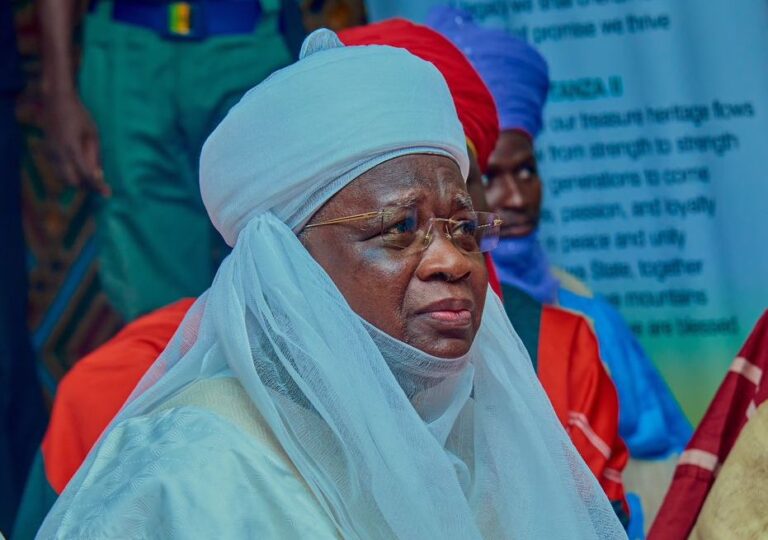The Arewa Consultative Forum (ACF), a prominent voice in northern Nigeria, recently ignited a controversy by alleging escalating hostility and violence against northerners residing in southern Nigeria, particularly in the southeastern region. The ACF’s Chairman of the Board of Trustees, Alhaji Bashir Dalhatu, expressed deep concern over these alleged attacks, characterizing them as a threat to national unity. Dalhatu further claimed that northerners have historically exhibited unparalleled hospitality towards other Nigerians, but this generosity has not been reciprocated in the South. He went on to assert that northerners face significant barriers to land ownership and property acquisition in the South-East, contributing to a growing sense of alienation. Furthermore, Dalhatu highlighted what he perceived as discriminatory federal policies against the North, fueling discontent and disillusionment with the Nigerian federation. These accusations have sparked strong reactions from prominent socio-cultural groups in the South.
Afenifere, a prominent pan-Yoruba socio-political organization, and Ohanaeze Ndigbo, the apex Igbo socio-cultural group, have vehemently refuted the ACF’s claims, labeling them as misleading, divisive, and politically motivated. Both groups maintain that northerners are peacefully coexisting with their host communities throughout the South, enjoying freedom of movement, business operations, and property ownership. Ohanaeze Ndigbo’s Deputy Publicity Secretary, Mazi Godwin Okenwa, categorically dismissed the allegations of hostility and violence, pointing out that it is, in fact, southeasterners who have historically endured violence and hostility, particularly in the North. He emphasized the warm reception and peaceful coexistence that northerners experience in the southeastern states, highlighting their active participation in the local economies and communities. Okenwa challenged the ACF to provide concrete evidence to substantiate their claims, emphasizing the baseless nature of the accusations.
Afenifere’s National Publicity Secretary, Jare Ajayi, echoed Ohanaeze’s sentiments, rejecting the notion that northerners face systemic maltreatment in the South simply due to their origin. He questioned Dalhatu’s assertions about discriminatory federal policies against the North, arguing that many federal policies, in reality, favor the North over other regions. Ajayi challenged the ACF to address the pressing issue of violence and displacement faced by communities in Benue, Plateau, and Southern Kaduna before pointing fingers at the South. He emphasized the need for restructuring Nigeria to empower regions to manage their own affairs more effectively, thereby addressing perceived imbalances and fostering harmonious coexistence.
The contrasting narratives presented by the ACF and the southern socio-cultural groups highlight the deep-seated tensions and mistrust that persist within the Nigerian federation. The ACF’s allegations, if substantiated, represent a serious threat to national unity and require urgent attention from the federal government. However, the strong rebuttals from Afenifere and Ohanaeze underscore the importance of verifying such claims before drawing conclusions. The focus should shift towards fostering dialogue and understanding between different regions to address the root causes of these grievances.
The accusations of discriminatory federal policies also warrant a thorough investigation. If indeed such policies exist, they must be rectified to ensure equitable treatment and development across all regions. The recurring theme of restructuring Nigeria as a potential solution to these challenges deserves serious consideration. Granting greater autonomy to regions could empower them to address their unique needs and aspirations, potentially mitigating the sense of marginalization that fuels such inter-regional tensions.
Moving forward, it is crucial to de-escalate the rhetoric and prioritize constructive dialogue. Open communication between representatives of different regions, facilitated by neutral mediators, could help bridge the divide and foster mutual understanding. The federal government has a vital role to play in promoting national unity by addressing the concerns of all regions and ensuring equitable distribution of resources and opportunities. Furthermore, fostering intercultural exchange programs and promoting inter-regional trade and cooperation could help break down stereotypes and build stronger bonds between communities. A concerted effort to address the root causes of these tensions, rather than resorting to accusations and counter-accusations, is essential for achieving a peaceful and prosperous future for Nigeria. A focus on collaborative problem-solving and addressing the underlying issues of resource allocation, political representation, and security concerns is paramount to building a united and harmonious nation.


